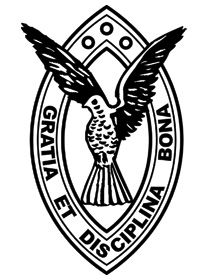
Christchurch Girls' High School in Christchurch, New Zealand, was established in 1877 and is the second oldest girls-only secondary school in the country, after Otago Girls' High School.

Columba College is an integrated Presbyterian school in Roslyn, Dunedin, New Zealand. The roll is made up of pupils of all ages. The majority of pupils are in the girls' secondary, day and boarding school, but there is also a primary school for boys and girls in years 1-6.
Burnside is a mainly industrial suburb of the New Zealand city of Dunedin. It is located at the mouth of a long valley, the Kaikorai Valley, through which flows the Kaikorai Stream. This valley stretches to the northeast for 3.5 kilometres (2.2 mi). Burnside is 5.5 kilometres (3.4 mi) to the southwest of the city centre, close to eastern end of the much larger suburb, Green Island. Other suburbs located nearby include Concord, immediately to the southeast and Kenmure further up Kaikorai Valley.

Hone Vivian Kouka is a New Zealand playwright. He has written 13 plays, which have been staged in New Zealand and worldwide including Canada, South Africa, New Caledonia and Britain. Kouka's plays have won multiple awards at the Chapman Tripp Theatre Awards, the 'Oscars' of New Zealand theatre. Kouka has also worked as a theatre director and producer. In 2009, Kouka was appointed a Member of the New Zealand Order of Merit, for services to contemporary Māori theatre.

Victor John Rodger is a New Zealand journalist, actor and award-winning playwright of Samoan and Pākehā heritage. Rodger's play Sons won acclaim at the Chapman Tripp Theatre Awards (1998) and received the Best New Writer and Most Outstanding New New Zealand Play awards. In 2001, he won the Bruce Mason Playwriting Award. Other plays include Ranterstantrum (2002) and My Name is Gary Cooper (2007), produced and staged by Auckland Theatre Company and starred a Samoan cast including Robbie Magasiva, Anapela Polataivao, Goretti Chadwick and Kiwi actress Jennifer Ward-Lealand.
Winifred Annie Valentine (1886–1968) was a New Zealand teacher and educationalist. She was born in Hawksbury, Otago, New Zealand in 1886. Winifred completed her teacher training in Dunedin. In 1921 she travelled to Canada under a reciprocal arrangement with the Canadian Educational Authority. She was a fighter for the rights to an education for children with special educational needs. She died in Wellington on 6 August 1968.
Japanese New Zealanders are New Zealand citizens of Japanese ancestry, which may include Japanese immigrants and descendants born in New Zealand. Japanese people first began immigrating to New Zealand in the 1890s. Until 1920, 14 Japanese citizens resided in New Zealand. Japanese immigration was halted during the period of the Pacific War and recommenced around the 1950s. From this period onwards, Japanese immigration remained small until the 1990s. In 1997, Japanese peoples were the 19th-largest ethnic group in New Zealand. As of the 2018 census, 18,141 New Zealand residents identify themselves as Japanese New Zealanders.
The New Zealand Players were one of New Zealand's first professional theatre companies, active between 1952 and 1960. The company's director was Richard Campion, who with his wife and co-founder Edith Campion were former members of the New Zealand branch of the Unity Theatre people's theatre movement. Edith was a member of the Hannah family, and the company was funded by the Hannah Trust.
The Southern Comedy Players, later the Southern Players and the Southern Theatre Trust, were a New Zealand theatre company, active between 1957 and 1971. They were founded by William Menlove and Bernard Esquilant, and based in Dunedin.

The cartography of New Zealand is the history of surveying and creation of maps of New Zealand. Surveying in New Zealand began with the arrival of Abel Tasman in the mid 17th century. Cartography and surveying have developed in incremental steps since that time till the integration of New Zealand into a global system based on GPS and the New Zealand Geodetic Datum 2000.
Emily Tess Duncan is a New Zealand playwright. She is co-founder of Prospect Park Productions, an organisation aiming “to create and produce original New Zealand theatre and collaborative projects that reach into other art forms." Duncan held the 2019 Robert Burns Fellowship at the University of Otago in Dunedin, New Zealand. She lives in Dunedin.

John Renata Broughton is a New Zealand academic. He is Māori, of Ngāi Tahu and Ngāti Kahungunu descent, and since 2012 has been a full professor at the University of Otago.
Elizabeth Mary Hocken, was a New Zealand artist and translator.
Lyndsay McLaren Forster was a New Zealand arachnologist.

Rosalie Louise Carey was a New Zealand actor, playwright, director and author who founded the Globe Theatre in Dunedin, the first purpose-built theatre for professional repertory in New Zealand, with then-husband Patric Carey. In 2010 Carey was appointed a Member of the New Zealand Order of Merit for services to the theatre. The New Zealand Society of Authors made Carey an honorary life member.
Massive Theatre Company, also called Massive or Massive Company, is a professional theatre company in Auckland, New Zealand.

Richard Huber is a playwright, actor and director based in Dunedin, New Zealand.
Jason Te Kare is a New Zealand director, playwright and actor.

Jan Patricia Bolwell is a Wellington-based New Zealand playwright, choreographer, director, dancer and teacher of dance. She established the Crows Feet Dance Collective in 1999 and remains its director.

David John O'Donnell is a theatre director, actor and academic based in Wellington, New Zealand. He has been a full professor at Victoria University of Wellington since 2019.












